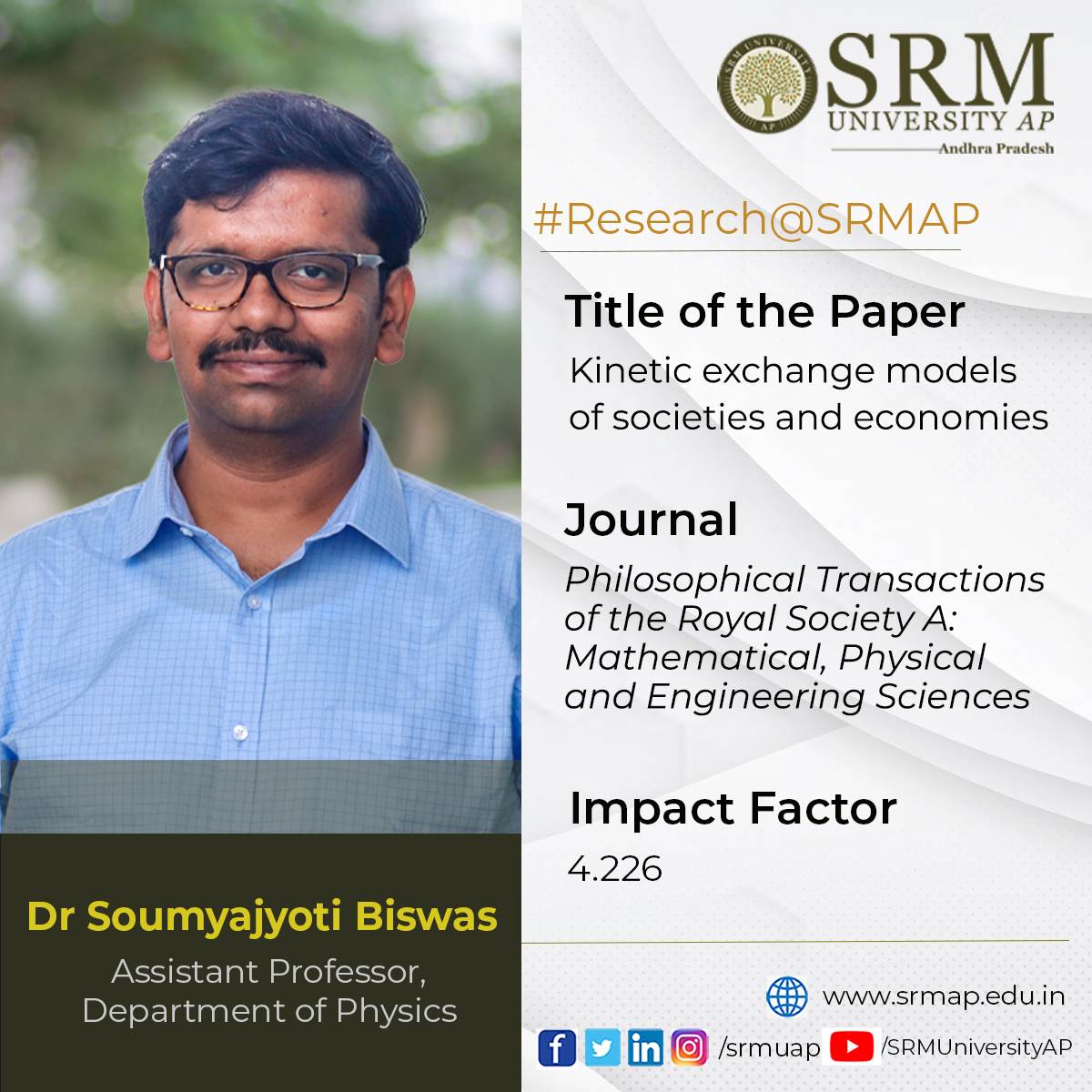
Dr Soumyajyoti Biswas, Assistant Professor, Department of Physics, had two lucky breaks as he got his article “Kinetic Exchange Models of Societies and Economies” featured in the prestigious journal Philosophical Transactions of the Royal Society A, the theme issue co-edited by Dr Biswas himself, along with Dr Guiseppe Toscani from the University of Pavia, and Dr Parongama Sen from the University of Calcutta. Philosophical Transactions of the Royal Society has the prestige of being the world’s longest-running science journal launched in 1665. Publishing high-quality theme issues on topics of current importance and general interest within the physical, mathematical, and engineering sciences, the journal continues its history of influential scientific publishing.
A kinetic model of binary interaction, with conserving or non-conserving exchange, has been an elegant and powerful tool to explain collective phenomena in myriad human interaction-based problems, where an energy consideration for dynamics is generally inaccessible. Nonetheless, in this age of Big Data, seeking empirical regularities emerging out of collective responses is a prominent and essential approach, much like the empirical thermodynamic principles preceding quantitative foundations of statistical mechanics.
Through this theme issue, the authors intend to bring together the current progress in the applications of kinetic exchange models in various applications of societies (opinion formations, rating, social networks, fake news, etc.) and economies (inequality measures, taxation, trade models, behavioral economics, etc.) using numerical simulations, machine learning techniques, analytical methods, and data analysis, reported by physicists, social scientists, mathematicians and economists through some of the original and reviewed articles.
In human interactions, such as a trade (exchange of money) or, discussions or debates (exchange of opinions), following simple dynamical rules, a collection of agents (a society) shows emergent properties that are widely seen in real data (distributions of wealth, formation of consensus, etc.). Without knowing the complexities that are involved at the individual levels, it is, therefore, possible to understand the average properties of the society as a whole. This is reminiscent of simple elastic collisions of ideal gas molecules that give average thermodynamic properties, such as temperature, pressure, etc. without knowing the complexities of the individual atoms. This has been a widely followed route to formulate statistical physical models of societies and economies.
The kinetic exchange models have been a very successful set of tools to understand the socio-economic emergent properties from simple models. Among other things, these models helped understand the growth of economic inequalities, the effects of taxes as well as the spread of opinions. A close quantitative resemblance with real data from various countries of the world demonstrates its usefulness.
The future prospects of the kinetic exchange models for societies and economies include possible predictions of extreme fluctuations in average measurable quantities by looking at the inequality of time series data. The models can help us in identifying the features of the real data that can mirror the underlying extreme fluctuations.

